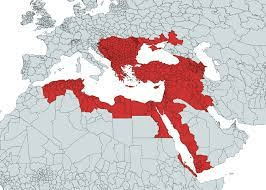Hernan Cortes interpreter who assisted in making Spanish colonization easier in Mexico.
La Malinche
Martin Luther disagreed with the Church's practice of letting people pay to forgive their sins.
Indulgences
a philosopher that emphasized individual rights and free market capitalism.
Adam Smith
The Enlightenment was also called the Age of Reason. Philosopher John Locke rejected the divine right of kings wrote about this (that no government could take away)
natural rights
This philosophical movement emphasized "natural rights" and the idea that reason and logic, rather than tradition or religion, should govern human affairs.
The Enlightenment
In this time period during the French Revolution, Robespierre and the Jacobins executed or imprisoned large numbers of enemies.
Reign of Terror
The spreading out of people.
Diaspora
This man started the Reformation.
Martin Luther
Regicide is the killing of a monarch. This happened to who during the French Revolution?
King Louis XVI
The Enlightenment Thinker responsible for the separation of powers is
1. Montesquieu 2. Rousseau 3. Voltaire
Montesquieu
This forced labor system where people would work for usually seven years to pay one's debt in order to gain freedom.
indentured servitude
This is a word (and MAIN cause of WWI) which means an intense pride in one's country OR the desire of a given ethnic group to form a country corresponding to that identity (shared language, culture, history).
Nationalism
Zheng He led the Treasure Ship explorations during this dynasty
Ming
During the reformation the Church was divided into...
The Protestant Church and Catholic Church.
This two-word term describes a relationship in which the citizens remain loyal to a government who, in return, provides safety and security. (Think: Jean Jacques Rousseau)
Social Contract
Karl Marx and Fredrich Engels wrote about the inherent power struggle between the bourgeoisie and the proletariat. Another term for proletariat is _________.
working class
This philosophy emphasizes the public ownership of goods, services and the means of production in a society.
Socialism/Communism
This philosophy emphasizes private ownership of land and the means of production, as well as the free exchange of goods and services in a market economy.
Capitalism.
This MAIN cause of WWI refers to the domination of foreign lands by a powerful state far away.
Imperialism
This was a pivotal period in Japanese history that started in 1868, marking the end of the Tokugawa shogunate.
This historical event was responsible for people moving into cities and a change from an agrarian, cottage economy to one dominated by industry and machine
Industrial Revolution
The Third Estate organized themselves and rejected the hierarchy of the time resulting in
The French Revolution
Emperor Qianlong (of the Qing Dynasty) dismissed a letter from King George who was inquiring hoping to do this.
Open up trade
The maps show the Ottoman Empire before WWI. When this empire fell, what nation-state emerged?

Turkey (now Türkiye)
This is the exchange of Old World and New World foods, goods, ideas, diseases, and more.